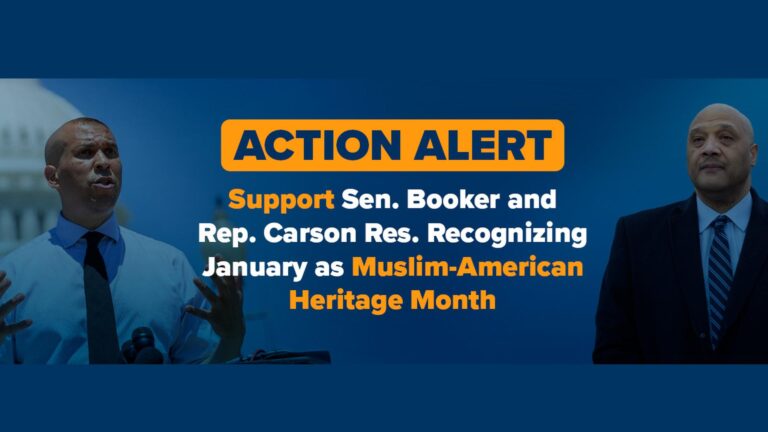The Philadelphia Inquirer has published an informative perspective by Dr. Jon Pahl on Islam and the practice of breaking fast in the month of Ramadan called Iftar. Please see the article reproduced below for your reading.
ACTION YOU CAN TAKE NOW:
1. Write a letter to the editor thanking the Inquirer for covering Islam and Ramadan: inquirer.letters@phillynews.com.
2. Contact Philadelphia Inquirer Editor, Amanda Bennett: abennett@phillynews.com
Link to the published article by Dr. Jon Pahl: http://www.philly.com/mld/inquirer/news/opinion/local2/region/15783956.htm
Article reproduced below:
Muslims teach lesson in sacrifice
Interfaith participation in a joyous Muslim celebration is tainted by stereotypes associating Islam with “violence.”
By Jon Pahl
About midway through the gracious Iftar dinner to which I was recently invited by the Philadelphia Dialog Forum (www.philadialogforum.org), I began to grow uneasy.
The problem was not a lack of hospitality. The food was excellent. The prayers were uplifting. The conversation was informative. My lament was for the comparative failings of the tribes with which I am most closely identified.
My discomfort began with the remarks by the Rev. Thomas Michel, Jesuit secretariat for interreligious dialogue from Rome. He mentioned casually how he’s been on “the Iftar circuit,” attending dinners at the invitation of Muslim communities around the world. I was struck by the privilege his remark revealed, and then wondered: What are Christians doing that is at all comparable?
Iftar is the daily meal that breaks the fast of Ramadan, which continues until Monday. It is the joyous cap of one of the five pillars of Muslim faith – sawm, or fasting. The meal traditionally begins with a fresh date – a sweet morsel that, after a day with no food or drink from sundown to sunset, no doubt tastes doubly sweet. The meal is ideally shared in community, as a celebration of God’s mercy and abundance. It has, to this Christian’s sensibility, a sacramental character.
And there’s the rub, isn’t it? Where are the Christians who are inviting Muslims to our holy meal? Aptly or not, I juxtaposed my experience of Iftar hospitality with Eucharistic exclusion – and my lament was under way.
My sadness deepened as Rabbi Yehezkel Landau, faculty associate in interfaith relations at Hartford Seminary, shared his own “lament” at the “missed opportunities” by religious communities, and U.S . policymakers, after 9/11. Instead, “we” went to war.
And by the time Ibrahim Abu’-Rabi’, also of Hartford, spoke about how Iftar fit within the broader Muslim worldview and practices, I have to admit I had been driven into a rather profound funk.
How can such a beautiful practice as Iftar, which is truly at the core of Muslim piety, not be enough, more than enough, to dispel stereotypes associating Islam with “violence”? Why do so many of my Christian brothers and sisters continue to fixate on the speck of “Islamic” terrorism, conveniently ignoring the very large log of American “Christian” weapons of mass destruction and military adventurism?
And, most pointedly, why do leaders of the current administration, Congress, and both political parties continue to get away with using language like sacrifice to legitimize war, when the sacrifice of hospitality so evident in Iftar is the only kind of sacrifice worthy of the name among civilized human beings?
If, as G.K. Chesterton once said, a life without sacrifice is abomination, what shame must adhere to men in power who appeal to the pretense of “sacrifice” to cloak a misguided policy? What an abomination it must be when privileged men and women call a “sacrifice” their sending of dedicated and idealistic young men and women to their deaths for what increasingly appears to be a web of lies, greed, power-lust, and irrational vengeance.
My Iftar lament was salved, somewhat, when Leonard Swidler, professor of Catholic studies at Temple University, spoke briefly. He reminded us that while 9/11 and the wars that followed have been “terrible events,” in fact nights like the one we were sharing, where Jews, Christians, and Muslims gathered together in peace, were growing in frequency. Out of the rubble of “missed opportunities,” some bridges were being built, and some sacrifices made, for which we could share in being truly grateful, and not feel ashamed.
As the psalmist, no stranger to lament, might also have reminded the 200 or so of us gathered in Center City: “A king is not saved by his great army; a warrior is not delivered by his great strength… Let your steadfast love, O Lord, be upon us, even as we hope in you.” (Psalm 33:16, 22)
Jon Pahl is professor of the history of Christianity in North America at the Lutheran Theological Seminary at Philadelphia, and a fellow in the Center for the Study of Religion at Princeton University.





